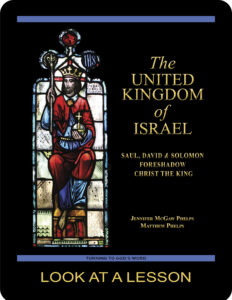economy of grace
 What does the Church mean by the phrase economy of grace, sometimes also referred to as the divine economy? In the Letter to the Ephesians 3:2 (NABRE), Paul writes to the early Christian community: “You have heard of the stewardship of God’s grace that was given to me for their benefit.” The word that Paul uses for stewardship, οἰκονομία (oikonomia) is a complex Greek word that defies simple translation. Looking with more detail into this word and its usage can give us a fuller and richer understanding of a couple of key passages in the Letter to the Ephesians about what it means to be a follower of Christ.
What does the Church mean by the phrase economy of grace, sometimes also referred to as the divine economy? In the Letter to the Ephesians 3:2 (NABRE), Paul writes to the early Christian community: “You have heard of the stewardship of God’s grace that was given to me for their benefit.” The word that Paul uses for stewardship, οἰκονομία (oikonomia) is a complex Greek word that defies simple translation. Looking with more detail into this word and its usage can give us a fuller and richer understanding of a couple of key passages in the Letter to the Ephesians about what it means to be a follower of Christ.
Oikonomia derives from two roots, οἶκος (oikos) and νόμος (nomos). Oikos is a word that has multiple meanings. It can mean “home” in the sense of the building or it can mean the abstract concept. It also can mean “household” in the sense of an estate or the goods and possessions of the house, and it also means “house” in the sense that we would talk about a ruling house to refer to a politically powerful family or a dynasty. Nomos refers to a “custom,” “rule,” or “law.” These roots combine in oikonomia to mean “the law or management of a house,” typically referring to house in the sense of an estate. Oikonomia came to have a primarily financial sense, though the broader meanings of oikos also can apply. The English word economy derives from oikonomia.
In the context of the Letter to the the Ephesians 3:2 (NABRE), Paul is stating that he’s been given management of God’s grace as though grace were a good of God’s household. This concept is by itself an interesting view of the workings of grace, but use of the word oikonomia is especially interesting a few chapters prior where Paul writes in the Letter to the Ephesians 1:9–10 (NABRE): “He has made known to us the mystery of his will in accord with his favor that he set forth in him as a plan for the fullness of times, to sum up all things in Christ, in heaven and on earth.”
In the Letter to the Ephesians 1:9 (NABRE), the word translated as favor is the same word translated as grace in the Letter to the the Ephesians 3:2 (NABRE), and in the Letter to the Ephesians 1:10 (NABRE) the word translated as plan is oikonomia. What we see here is that the grace God put forth in Christ leads to oikonomia of the fullness of time. This grace, then, which is in Christ, is the governing of all time, and in the Letter to the the Ephesians 3:2 (NABRE), Paul claims to have become a steward of this grace. What we can take from these two texts, then, is that as Christians we all are invited into this divine oikonomia or the management of the fullness of all time.
related topics: at home; grace; gracious; order & chaos
you also may like our study of Saul, David & Solomon
 The United Kingdom of Israel: Saul, David & Solomon Foreshadow Christ the King, a 28-lesson Catholic Bible study with an imprimatur, provides an in-depth look at the First and Second Books of Samuel to learn how the lives of the monarchs Saul, David, and Solomon point ahead to the kingdom of heaven. The unified reign of King David is seen as a foreshadowing or type of the unity that is one of the four marks of the Church—the kingdom of God—established by Jesus Christ. Click on the book’s cover to view a sample lesson.
The United Kingdom of Israel: Saul, David & Solomon Foreshadow Christ the King, a 28-lesson Catholic Bible study with an imprimatur, provides an in-depth look at the First and Second Books of Samuel to learn how the lives of the monarchs Saul, David, and Solomon point ahead to the kingdom of heaven. The unified reign of King David is seen as a foreshadowing or type of the unity that is one of the four marks of the Church—the kingdom of God—established by Jesus Christ. Click on the book’s cover to view a sample lesson.
 Click on the picture of the statue of Moses with horns (above) to learn more about Lost in Translation. A new entry is archived each Monday. Contact us to receive Lost in Translation by email every week. You may use any of the contact links on our website to ask Matthew a question.
Click on the picture of the statue of Moses with horns (above) to learn more about Lost in Translation. A new entry is archived each Monday. Contact us to receive Lost in Translation by email every week. You may use any of the contact links on our website to ask Matthew a question.

Leave a Reply
You must be logged in to post a comment.